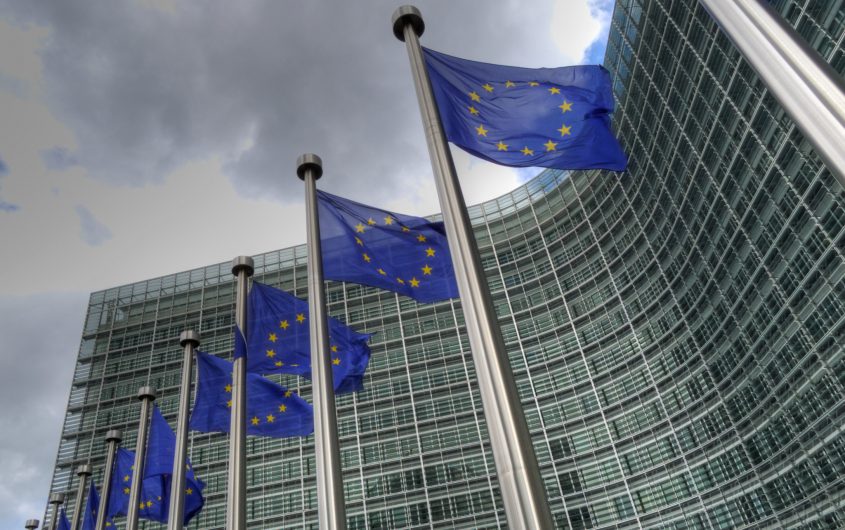
Kevin White via flickr
EU Strategic Autonomy: Opening Up?

Peter S. Rashish
Vice President; Director, Geoeconomics Program
Peter S. Rashish, who counts over 30 years of experience counseling corporations, think tanks, foundations, and international organizations on transatlantic trade and economic strategy, is Vice President and Director of the Geoeconomics Program at AICGS. He also writes The Wider Atlantic blog.
Mr. Rashish has served as Vice President for Europe and Eurasia at the U.S. Chamber of Commerce, where he spearheaded the Chamber’s advocacy ahead of the launch of the Transatlantic Trade and Investment Partnership. Previously, Mr. Rashish was a Senior Advisor for Europe at McLarty Associates, Executive Vice President of the European Institute, and a staff member and consultant at the International Energy Agency, the World Bank, UNCTAD, the Atlantic Council, the Bertelsmann Foundation, and the German Marshall Fund.
Mr. Rashish has testified before the House Financial Services Subcommittee on International Monetary Policy and Trade and the House Foreign Affairs Subcommittee on Europe and Eurasia and has advised three U.S. presidential campaigns. He has been a featured speaker at the Munich Security Conference, the Aspen Ideas Festival, and the Salzburg Global Seminar and is a member of the Board of Directors of the Jean Monnet Institute in Paris and a Senior Advisor to the European Policy Centre in Brussels. His commentaries have been published in The New York Times, the Financial Times, The Wall Street Journal, Foreign Policy, and The National Interest, and he has appeared on PBS, CNBC, CNN, NPR, and the BBC.
He earned a BA from Harvard College and an MPhil in international relations from Oxford University. He speaks French, German, Italian, and Spanish.
As the idea of “strategic autonomy” (de jure sovereignty) has migrated within the European Union from the foreign and defense policy realm to economics and trade it has picked up a modifier—the word “open.”
As recently as last week Josep Borrell, the EU’s High Representative for Foreign Affairs and Security Policy, offered that “strategic autonomy is a way of framing our choices: we must be able to defend our interests, by ourselves if necessary.” Yet in the last month both Margrethe Vestager, the EU Executive Vice President responsible for digital and competition policy and Trade Commissioner Phil Hogan have spoken of the importance of “open strategic autonomy.”
“Open” is a powerful and positive word. In the global economic context, it signifies a belief in the value both of cooperation with one or more countries and competition among firms to provide goods and services as avenues to produce prosperity and progress.
No less important is the word “strategic.” Its most compelling definition combines realism, silo-breaking, and farsightedness: an unsentimental understanding of how a wide range of policies and relationships can work together to maximize a country’s (or in the case of the EU, a group of countries’) power to shape the global economic environment in its favor.
Indeed, these two concepts are linked: unless a country remains open to the world, it voluntarily (and irresponsibly) deprives itself of opportunities to advance its economic interests and wellbeing.
It is with “autonomy” that the problems start. Understandably, the EU (and other economies) wants to avoid a repetition of the shortages in essential medical goods produced by the supply shocks associated with COVID-19. But is autonomy the best way to do that? While greater government stockpiling of goods with public health or national security value makes sense, relying on domestic production could be counterproductive. If the next shock is home grown, a diversity of manufacturing sites around the world and strong trade and investment relationships to deliver those essential goods are what counts.
But what about the entire phrase, “open strategic autonomy,” from the perspective of transatlantic relations? If it means an EU that on the one hand is able to act more effectively on behalf of its global economic interests and on the other is willing to work with close partners to do so (e.g., to push back against China) then it could be the basis for strong cooperation with the United States. That idea would be close to what is sometimes referred to as the “twin pillars” approach to U.S. relations with Europe put forth in a 1962 speech by John Kennedy, the most transatlantic U.S. president.
While the Trump administration has little interest in cooperation with the EU on global economic strategy, with a Biden administration, things would be different. As long as the emphasis in the EU is on “open” and “strategic” the future of transatlantic economic relations could be promising.









